So there's a trend I've noticed when it comes to bashing the show. It's cool to bash the TV series, but the Song of Ice and Fire novels are still held in high esteem. There's an unspoken implication that the books are practically perfect and above criticism. If they do get criticized, it's usually the pacing of the last two novels. However, I have a lot of issues when it comes to the books. There's a lot to criticize so let's jump in.
Part 1 - "Realism"
One of the major selling points of the novels is that it's a more "grounded" and "realistic" series when compared to your average fantasy series. I have multiple problems with this.
"We all know the world is filled with chance and anarchy
So yes it's true to life for characters to die randomly
But newsflash, the genre's called fantasy!
It's meant to be unrealistic you myopic manatee!"
I'm going to repeat this, because this needs to be said again:
"We all know the world is filled with chance and anarchy
So yes it's true to life for characters to die randomly
But newsflash, the genre's called fantasy!
It's meant to be unrealistic you myopic manatee!"
But the Grimdark genre is no more “realistic” than the Hallmark Channel.
Both Grimdark and Hallmark Christmas movies take one aspect of human nature—be it cruelty or pancreas-killing levels of sweetness—and blow it way out of proportion.
I agree that heroes should have flaws. There is still a huge difference between trying to do the right thing despite your flaws and letting your flaws define you.
The Grimdark genre wallows in the worst of humanity...
I’ve heard Grimdark called “gritty,” “pragmatic,” or, most humorously to me, “realistic.”
If your reality is devoid of nobility, honesty, and character, you’re in desperate need of a life change."
# 2 - Is The Story Actually That Good of A Reflection of The Middle Ages?
Going along with the "realism" bit, people often heap praise on Game of Thrones for being a "historically grounded" medieval fantasy series. I remember raising an eyebrow when people said this and I remember wondering to myself: "Is Game of Thrones actually a good representation of the Middle Ages?" The people who normally tout this line are not historians so I decided to do a little bit of digging and it turns out that plenty of medieval historians have actually pointed out numerous ways in which the books aren't realistic.
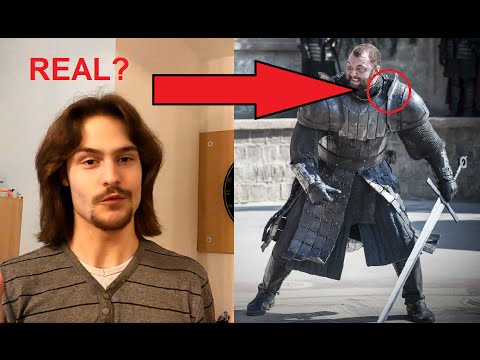 George RR Martin has gone on record stating why he chose to make the world of Westeros as dark and brutal as he did:
George RR Martin has gone on record stating why he chose to make the world of Westeros as dark and brutal as he did:
"I wanted my books to be strongly grounded in history and to show what medieval society was like, and I was also reacting to a lot of fantasy fiction. Most stories depict what I call the ‘Disneyland Middle Ages’—there are princes and princesses and knights in shining armor, but they didn’t want to show what those societies meant and how they functioned."

“But Martin’s darker view of the past isn’t more real. Just because something is edgy doesn’t mean it’s true; as many of the articles here at The Public Medievalist have shown, there was a lot more to the Middle Ages than war, violence, whiteness, and sexism.
 What does it say about modern readers and viewers that we’re ready to buy in to such a dark vision of the medieval past? Perhaps our fascination with barbaric medievalism lets us offload our own social problems onto a time period so far behind us that it’s practically alien. We can feel superior to those dirty, backwards medieval people. And we can feel safe in our own modern mythology of progress and decency, quietly ignoring any similarities George R. R. Martin’s world has with our own."
Now what are some other criticisms that actual medieval historians have made about the "realism" in A Song of Ice and Fire?
What does it say about modern readers and viewers that we’re ready to buy in to such a dark vision of the medieval past? Perhaps our fascination with barbaric medievalism lets us offload our own social problems onto a time period so far behind us that it’s practically alien. We can feel superior to those dirty, backwards medieval people. And we can feel safe in our own modern mythology of progress and decency, quietly ignoring any similarities George R. R. Martin’s world has with our own."
Now what are some other criticisms that actual medieval historians have made about the "realism" in A Song of Ice and Fire?

"The thing that always strikes me is, these people don't seem to be that interested in religion," Pyrdum said of fantasy authors. "When I see a fantasy work, they seem to be modern people stuck with medieval technology … It's hard to separate the medieval world from the presence of the church.”
(Source: https://www.livescience.com/44599-medieval-reality-game-of-thrones.html)

This point of his has been countered by an actual historian:
“But Martin perhaps goes too far the other way, counteracting a rosy vision of the past with one covered in mud. In the books, any knight foolish enough to be a true believer in chivalry is doomed.”
“But Martin’s darker view of the past isn’t more real. Just because something is edgy doesn’t mean it’s true; as many of the articles here at The Public Medievalist have shown, there was a lot more to the Middle Ages than war, violence, whiteness, and sexism.
“But life probably wasn't quite as horrific as portrayed in the war-torn world of Westeros, at least not most of the time. Back then, commoners worked hard, but they were "just people," Pyrdum said.
"We have lots of records of peasants having fun — getting really drunk, celebrations, parades," he said.”
“In fact, had Joffrey come to the throne as a child king in medieval England, his uncles would have no reason to win the throne through combat, Ashdown-Hill said; rather, they would have held the power in their nephew's stead. In France, on the other hand, it was standard for the Queen Mother to hold power for her minor children on the throne, which Joffrey's mother Cersei tries to do in "Game of Thrones," with varying degrees of success.

The pervasiveness of a major religion in all aspects of life is what "Game of Thrones" and most fantasy epics leave out of their Middle Age-style worlds, he said."We have lots of records of peasants having fun — getting really drunk, celebrations, parades," he said.”
“In fact, had Joffrey come to the throne as a child king in medieval England, his uncles would have no reason to win the throne through combat, Ashdown-Hill said; rather, they would have held the power in their nephew's stead. In France, on the other hand, it was standard for the Queen Mother to hold power for her minor children on the throne, which Joffrey's mother Cersei tries to do in "Game of Thrones," with varying degrees of success.
"The thing that always strikes me is, these people don't seem to be that interested in religion," Pyrdum said of fantasy authors. "When I see a fantasy work, they seem to be modern people stuck with medieval technology … It's hard to separate the medieval world from the presence of the church.”
(Source: https://www.livescience.com/44599-medieval-reality-game-of-thrones.html)
"One’s first instinct is to describe it as featuring a “medieval” level of technology since you have knights in armor, castles, no guns or cannons, and no printing press. But in other respects Westeroi technology is much more advanced than the technology of medieval Europe. This is particularly true in the life sciences. Their “moon tea” appears to be a highly effective abortifacient or perhaps some kind of equivalent to our so-called “morning after pill.” They also appear to understand a fair amount about the problem of infected wounds and how to treat them. This science is less advanced than post-WWII antibiotics but seems to be at-or-beyond 19th century medical science. There’s also indication that thanks to the exigencies of extra-long winters they’ve figured out how to treat scurvy properly." (Source: https://slate.com/business/2012/08/technology-in-a-game-of-thrones-and-the-song-of-fire-and-ice.html) 
What would you like fans of Game of Thrones to know about the real Middle Ages?
It was more racially, ethnically and culturally diverse than Westeros.
Looking beyond Game of Thrones, what do you think are the biggest misconceptions people have about that era?
I have to laugh a little because the “era” is the span of about one thousand years and contained just as many cultures! I think our view of the middle ages tends to be a bit narrow: “medieval” is often a synonym for “barbaric,” so the assumption is that the “dark ages” was a widespread time period of moral bankruptcy, intellectual regression and perpetual violence. In reality, people were establishing universities and trade routes while also making important cultural advancements. The Islamic world (to use that term loosely) was responsible for progressing mathematics and medicine, while Asian cultures saw an outpouring of poetry and philosophy. Even Vikings – the archetype for Western medieval warrior culture – were advancing trade, founding new settlements and peacefully connecting with non-European cultures. While violence and political intrigue did happen, those things often overshadow all the good things that humans accomplished.
(Source: https://www.clydefitchreport.com/2017/08/game-of-thrones-medieval/)
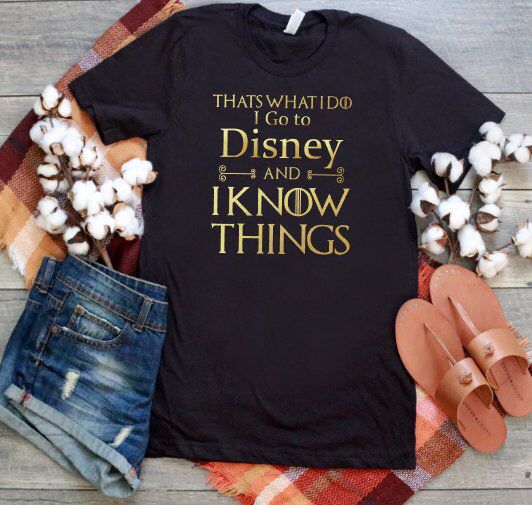 “While it’s true that women in the Middle Ages could not vote or run for public office, there are many scholars (myself included) that see the position of women actually worsen after the Middle Ages. As medieval scholar Joan Kelly-Gadol argues, women did not have a Renaissance; only men did. During the Middle Ages, women could be found in positions of power”
“While it’s true that women in the Middle Ages could not vote or run for public office, there are many scholars (myself included) that see the position of women actually worsen after the Middle Ages. As medieval scholar Joan Kelly-Gadol argues, women did not have a Renaissance; only men did. During the Middle Ages, women could be found in positions of power”
“By and large, there were far more good female rulers during the Middle Ages than Dany-esque tyrants or sept-destroying Cerseis. Beyond just good female rulers, the Middle Ages was not nearly as sexist or misogynistic as Game Of Thrones would lead us to believe. Medieval women had a lot more power and freedom than the women in Westeros.”
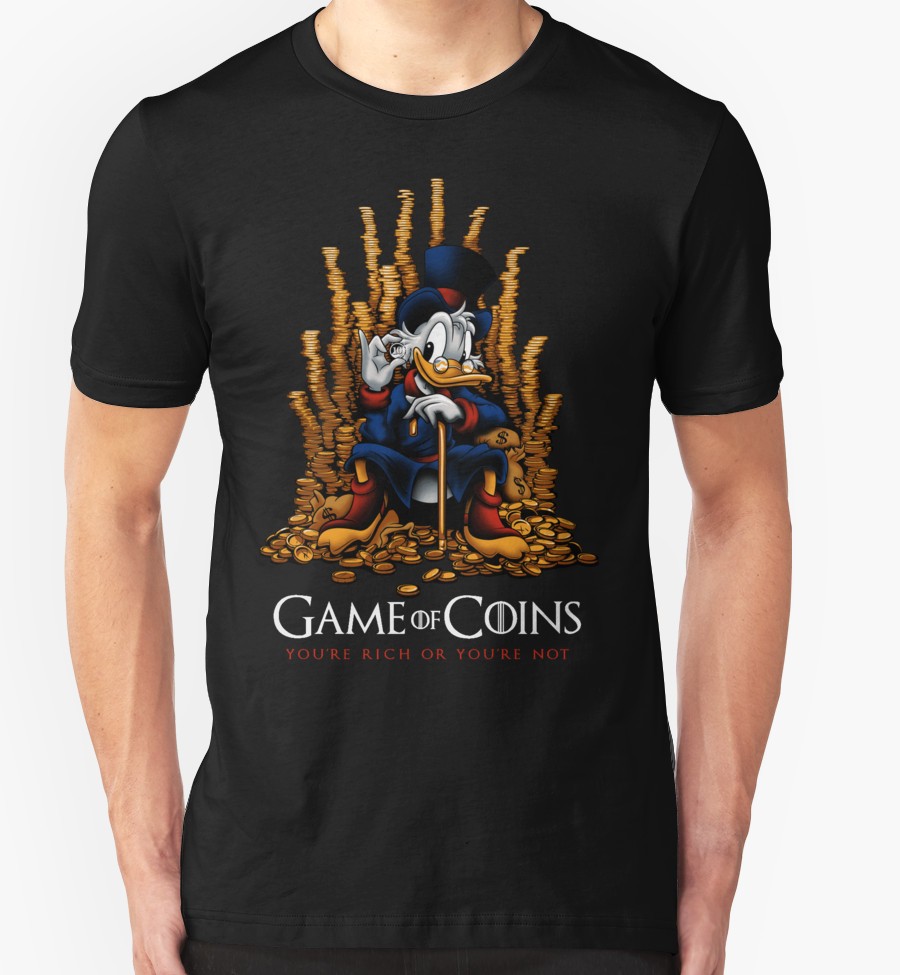
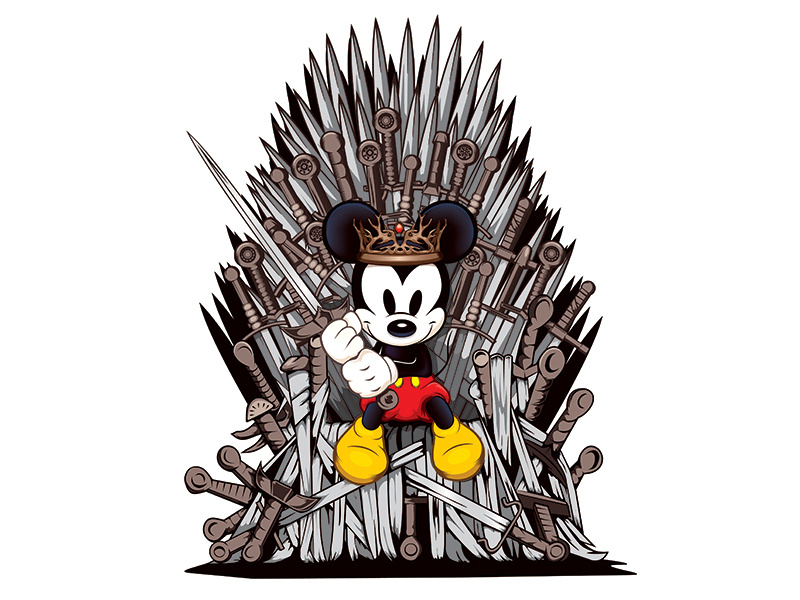 “The modern world seems dark and full of terrors; and while it’d be a little too optimistic to say this is completely false, it is not completely true either. When modern writers hyper-focus on pessimistic modern ideas and become cynical about all things, it reflects in our understandings of greatly more complex histories. The greatest victim in this is that of the “barbaric, ruthless, unforgiving” middle ages. And so long as people continue to believe that this is the case, we will forever be living under the shadow of cynicism and hopelessness.
“The modern world seems dark and full of terrors; and while it’d be a little too optimistic to say this is completely false, it is not completely true either. When modern writers hyper-focus on pessimistic modern ideas and become cynical about all things, it reflects in our understandings of greatly more complex histories. The greatest victim in this is that of the “barbaric, ruthless, unforgiving” middle ages. And so long as people continue to believe that this is the case, we will forever be living under the shadow of cynicism and hopelessness.
Good people and all those wonderful things exist now just as they did back then. There’s no need to paint exclusively with the colour black: introduce some complex, bright tones to your pallet and explore how rich the world truly is.”
(Source: https://station85blog.wordpress.com/2018/11/15/a-game-of-grimdark-the-effects-of-game-of-thrones-on-fantasy-writers-and-medieval-history/)
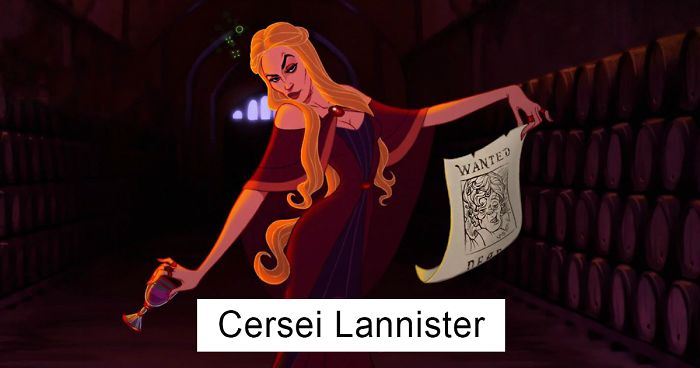 Now you might be thinking to yourself: "Wait a second, you just got done saying that fantasy wasn't supposed to be realistic. Now you're criticizing the books for not being realistic enough. Aren't you contradicting yourself?"
Now you might be thinking to yourself: "Wait a second, you just got done saying that fantasy wasn't supposed to be realistic. Now you're criticizing the books for not being realistic enough. Aren't you contradicting yourself?"
A Song of Ice and Fire isn't as realistic as its fans would like to have you believe. It just feels realistic to many people. And the reason why it feels realistic to many people is because the novels reinforce people's misconceptions about the Middle Ages being a brutal and barbaric time. That's why people into it. It reinforces their misconceptions. It also reinforces the dark, cynical beliefs most people have. It reinforces the cynicism of a post 911 world.
“By and large, there were far more good female rulers during the Middle Ages than Dany-esque tyrants or sept-destroying Cerseis. Beyond just good female rulers, the Middle Ages was not nearly as sexist or misogynistic as Game Of Thrones would lead us to believe. Medieval women had a lot more power and freedom than the women in Westeros.”
The popular understanding of Medieval times comes from the Victorians
"The Victorians dictate much of our understanding of the Middle Ages. Much of the sex, violence, and misogyny that many believe to be part of the “real” Middle Ages actually has much more to do with the sexual repression, violent colonialism, and sexism of the Victorian period. During the Victorian era, women could not own land, plead their case in court, seal their names in business deals, or go on Crusade. During the Middle Ages, women could do all those things. Queen Victoria ruled England, but she was no Eleanor of Aquitaine. In an 1870 letter Queen Victoria wrote, “Were women to ‘unsex’ themselves by claiming equality with men, they would become the most hateful, heathen, and disgusting of beings and would surely perish without male protection.”
(Source: https://www.avclub.com/the-middle-ages-weren-t-as-sexist-as-game-of-thrones-wo-1834980838)
“The largest issue at play is the disconcerting idea that “if it feels realistic, then it must be factual”. And because Game of Thrones, on the whole, tends to validate people’s beliefs in a more brutal, loveless and unforgiving past, it only perpetuates the illusion that the medieval world was as bleak as we like to imagine it as.”
“And if the current times are overwhelmingly terrible, societies tend to look back for either reassurance that times were better, or with a mentality of “at least it wasn’t as bad as then”.Good people and all those wonderful things exist now just as they did back then. There’s no need to paint exclusively with the colour black: introduce some complex, bright tones to your pallet and explore how rich the world truly is.”
(Source: https://station85blog.wordpress.com/2018/11/15/a-game-of-grimdark-the-effects-of-game-of-thrones-on-fantasy-writers-and-medieval-history/)
________________________________________________Conclusion: Here's another major reason why I'm criticizing the "realism" of the books: One of the main selling points of the story as a whole is that it's "realistic" and "grounded" in medieval history. This is also a line of logic that fans of the series use whenever people criticize certain aspects of the story, like it's overuse of rape for example.
My point in criticizing the "realism" of the series is to point out that one of the most important selling points of the entire series doesn't actually hold up to scrutiny. Both the show and the books parade their "realism" around for all to see and they're not as realistic as they're thought to be.
A Song of Ice and Fire isn't as realistic as its fans would like to have you believe. It just feels realistic to many people. And the reason why it feels realistic to many people is because the novels reinforce people's misconceptions about the Middle Ages being a brutal and barbaric time. That's why people into it. It reinforces their misconceptions. It also reinforces the dark, cynical beliefs most people have. It reinforces the cynicism of a post 911 world.
No comments:
Post a Comment